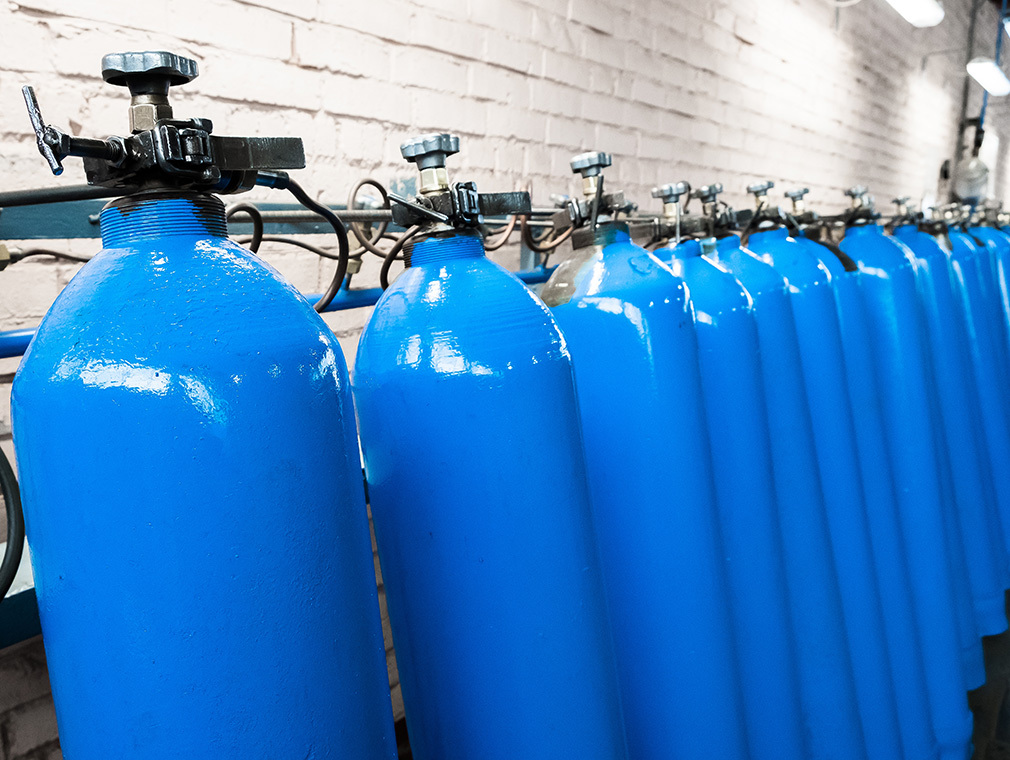Propane is a non-toxic and colourless gas and a member of the paraffin hydrocarbons along with methane and ethane. It has a clean-burning characteristic and can be used for many applications in homes, businesses, and industries, such as cooking, space heating, fuel for internal combustion engines, and raw materials to create other chemical products.
Propane is stored in tanks and cylinders as a compressed liquid, commercially known as LPG (Liquefied Petroleum Gas). The liquid exists in equilibrium with propane vapour in the container headspace. As the temperature of the liquid propane increases, the pressure within the cylinder increases according to the vapour pressure of the propane. Similarly, when the temperature of the liquid propane decreases, the pressure within the cylinder decreases.
Another important aspect regarding liquefied propane is that as its temperature increases the liquid propane expands and fills up more of the container volume. In fact, liquid propane expands 17 times more than water during similar temperature increases.
Due to these characteristics, there are safety-critical design features and procedures that should be implemented in the propane industry to ensure the safe use of propane.
Otherwise, it could lead to a catastrophic incident, such as the 2014 Philadelphia Food Truck Explosion.
On July 1, 2014, a propane cylinder catastrophically failed and exploded on the back of a food truck parked at the intersection of Wyoming Avenue and 3rd Street in Philadelphia, PA.

The explosion led to a sudden release of pressurized propane vapor and superheated propane liquid, which rapidly evaporated resulting in a large white cloud that entered and engulfed the rear of the food truck.

This cloud ultimately found an ignition source within the food truck and resulted in a significant fireball burning both inside and outside of the food truck.

The explosion and ensuing fire fatally injured the food truck owner and her daughter and also caused injuries to 11 other individuals.

At the 2022 Spring Meeting and 18th Global Congress on Process Safety, Gexcon US CEO & Principal Engineer Scott G. Davis, Ph.D., P.E., CFEI will present a paper entitled “Propane Cylinder BLEVE: Investigation Findings and Lessons Learned in the 2014 Philadelphia Food Truck Explosion”.
Dr. Davis will present the results of our investigation into the cause and origin of the catastrophic failure and explosion event, which included:
- video footage of the explosion and ensuing fire;
- advanced propane phase diagrams to determine the expansion and resulting pressures within the cylinder prior to failure; and
- applying advanced blast techniques to determine the post-catastrophic blast and ignition during the event. These techniques included advanced computational fluid dynamic modelling.
He will also discuss safety-critical design features and processes in the propane industry that must be in place to ensure the safe use and filling of propane cylinders.
Presentation detail
Title: Propane Cylinder BLEVE: Investigation Findings and Lessons Learned in the 2014 Philadelphia Food Truck Explosion
Author: Scott G. Davis and Derek M. Engel
Session: Fires, Explosions and Reactivity II
Presenter: Scott G. Davis
Date & Time: Tuesday, April 12, 2022 – 11:15 – 11:45 AM CDT
Case study
The case study discusses safety-critical design features and processes in the propane industry that must be in place to ensure the safe use and filling of propane cylinders.




![Image Banner Source: This picture was courtesy of Chiltern Air Support as cited in [1]](https://gexcon-website.ams3.cdn.digitaloceanspaces.com/Blog/_thumb_460x345/60815/Picture-0.webp)





